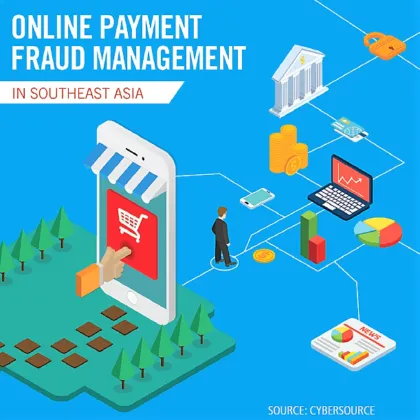
Online payment fraud management affects customer retention
Three in four merchants in Southeast Asia currently do not screen mobile fraud even though 91.5% of merchants surveyed feel that mobile fraud is riskier than online fraud, according to the CyberSource Online Fraud Benchmark Report – 2016 Southeast Asia Edition.
The report is part of the technology company’s inaugural fraud benchmark study for South-east Asia and it warned retailers that ignoring mobile screening may lead to oversight that fraudsters can exploit for mobile transactions. This is especially important as 58.6% of merchants have adopted the mobile channel.
Additionally, one in four merchants expect revenue loss to increase, compared to the year before. About 2.8% of e-commerce revenue is lost due to fraud, said CyberSource.
Teresa Wong, head of market development, CyberSource APAC, told Retail Asia: “Fraud management in e-commerce is essential because online payment fraud can cost businesses up to billions of dollars annually — not just in fraud losses, but also administrative overheads incurred while managing fraud. Additionally, fraud management is integral to supporting the brand experience and customer retention. Today’s digitally connected consumers expect a convenient as well as secure online shopping experience, regardless of the channel and device they use.”
The report suggested that better visibility to prevent and detect fraud will lead to a boost in sales revenue. Human intervention and manual review are relied on as 15.9% of orders are manually screened, after which 88.7% get accepted. In deciding if the transaction is fraudulent, 2.5% of orders are rejected due to fraud suspicions alone. About 8.6% of rejected orders are believed to be valid, known as “false positives”.
CyberSource said that rejecting transactions carry the risk of reducing potential revenue or insulting good customers. As such, 59.9% of merchants said streamlining manual review is their top priority as manual review is expensive and slows down order acceptance and processing. It will also lighten the strain on labour and time, thus boosting productivity and the customer experience.
Another fraud management goal that is a priority for 54.6% of the respondents is to improve automated detection and sorting accuracy.
Wong added: “Online fraud managed by an e-commerce business affects many aspects ranging from customer experience to fraud losses and operational costs, as well as having a direct impact to growth potential. These businesses need the ability to not only track but also screen and manage online fraud.”
To tackle fraud effectively, merchants and retailers need the right tools and fraud management strategy. Wong explained: “They should seek optimised solutions that enable them to quickly process as many genuine orders to maximise sales and, at the same time, have robust and accurate fraud detection while still keeping operational costs optimised.”
Published in September last year, CyberSource’s fraud report features findings based on interviews with 152 e-commerce merchants from Singapore, Malaysia, Indonesia, Thailand and the Philippines.



















 Advertise
Advertise






